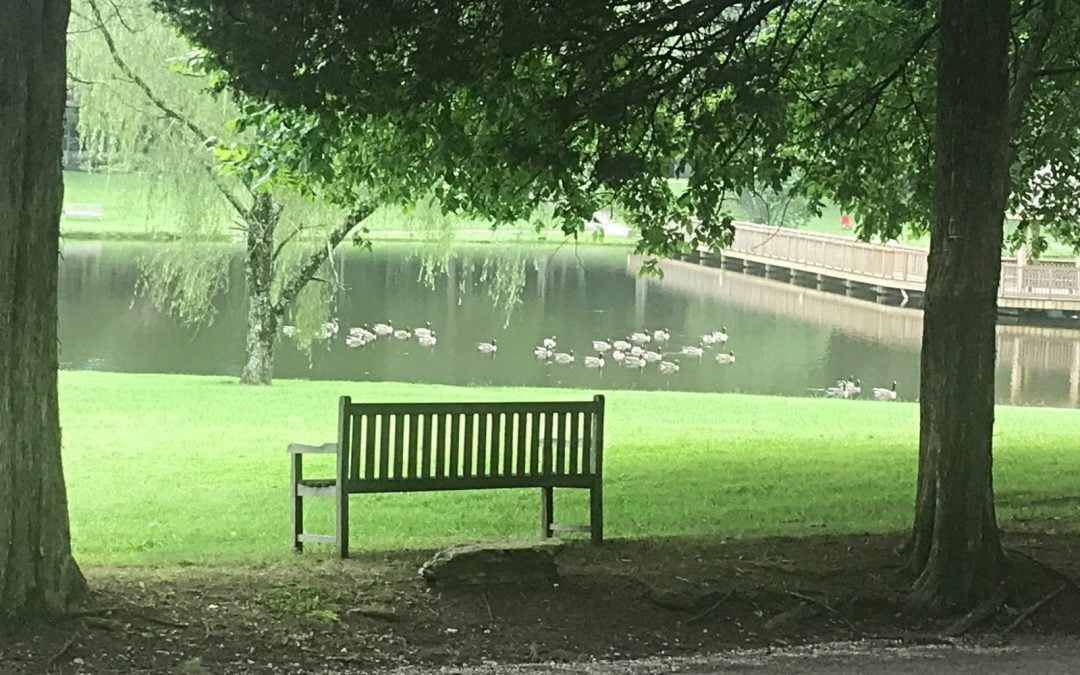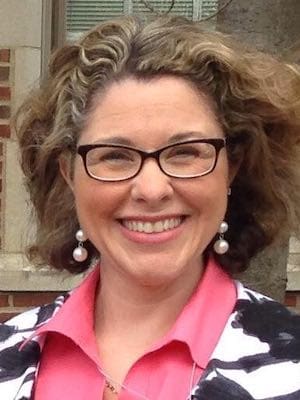Can you hear it? That intrusive, loud Spirit-call?
She began whispering many years ago but has been downright obnoxious lately. But I’m getting ahead of myself.
The Samuel DeWitt Proctor Institute for Seminarians began with a gentle mindfulness exercise led by Patrick Reyes, a Latinx practical theologian, educator, administrator, institutional strategist and author of the book, “Nobody Cries When We Die.”
He was guiding students and faculty from around the U.S. into a week focused on “the sacrality of every child” on the holy ground where the Proctor Institute has been meeting for 25 years.
In the quiet of that sacred space, I worked hard to try to conjure a different image, but my mind’s eye kept seeing a goose, pondering discernment and remembering the last lines of Mary Oliver’s poem, “The Summer Day”: “Tell me, what is it you plan to do / with your one wild and precious life?”
My mind was also churning, “the goose is loose,” a tag line from a recent sermon by Amy Mears, co-pastor of Glendale Baptist Church in Nashville, Tennessee, in which I learned that goose can be a metaphor for the Holy Spirit.
It hadn’t fully dawned on me yet that the farm that would till my soul contained a literal pond full of geese. That happened later.
But in that moment of mindfulness, the geese honked right on cue: “What does the image your mind’s eye has painted say to you?” Honk. “What are you bringing into this space that needs exploring?” Honk. Honk.
Fine. Discernment it is. Hello, geese. I’m ready. Let’s do this.
The journey of the week began with a walking pilgrimage around the farm. On it, I encountered Langston Hughes’ poem, “Evil.”
I was blessed by the moving water of Buffalo Creek. I remembered our ancestors who gave their lives for racial reconciliation, and I witnessed the pouring out of libations for those in need of healing.
It was the perfect prelude to a week overflowing with prophetic preaching, informative panel discussions about the daily realities faced by my black and brown siblings, interactive small groups where we put into practice what we were learning, and powerful praise and worship.
It was literally more than my heart could handle at times. Here’s what I carry with me from The Farm.
1. Race matters.
My friends of color do not experience America as I do. They are often targets of undeserved suspicion by people, especially white people, in positions of authority.
The criminal justice system is a capitalistic enterprise that relies on “customers.” Our society has created a world in which the poor are imprisoned so that the rich can profit.
How has this happened in a country where so many profess to be religious?
2. History matters.
The books we read prior to the Proctor Conference introduced me to people I’ve never met before and to events I didn’t know had happened.
I graduated from a public high school and have two post-secondary degrees, a bachelor’s from a private liberal arts university and a master’s from a regional state university.
The missing histories caused me to wonder who is writing the history books, organizing the curriculum, teaching in the classroom and administrating the schools.
Why don’t we tell the whole truth about our country’s racial crimes and systems of injustice?
3. Jesus matters.
I’m not talking about the blond-haired, blue-eyed idol on the walls of some Sunday School rooms. I’m talking about Jesus who was born a poor Jewish boy.
Jesus, who changed the world, even though he had no position with which to associate that privilege.
Jesus, who suffered at the hands of evil but who did not remain dead. Jesus, who invites us to follow on The Way.
Why do some churches and religious traditions attempt to bury this person of Jesus and replace him with an institutional power-hungry empire that seeks to add members to its club?
4. Language matters.
I’ve been in church since before I was born, so I have seen a few iterations of the Lord’s Supper. Usually there is a line, based on 1 Corinthians 11:23, that says, “On the night he [Jesus] was betrayed …”
My faith communities have almost exclusively been white, and so I noticed when a black woman led communion at Proctor and said, “On the night he [Jesus] was arrested …”
Betrayal. Arrest. What are the implications of this language shift as a prelude to Holy Communion?
And just like a good sermon, my experience of discernment at Proctor ended where it began.
It came in a call from Starsky Wilson, an ordained minister who is president and CEO of Deaconess Foundation, to be a sanctuary of God rather than a sanctuary of empire.
It came from the rising of a young black woman in response to that call, words on her shirt declaring the Scripture that called to me as a girl: Romans 12:2, “And do not be conformed to this world, but be transformed by the renewing of your mind, that you may prove what is that good and acceptable and perfect will of God.”
And it came, yes, in the honk of wild geese. The goose is on the loose.
Editor’s note: This article is part of a series focused on engaging the emerging generations of faith leaders. Learn more about EthicsDaily.com’s “Emerging Voices” and “U:21” series here.


